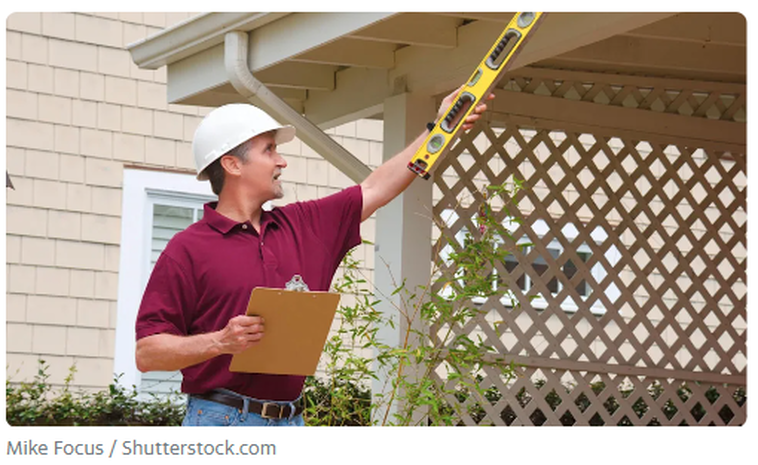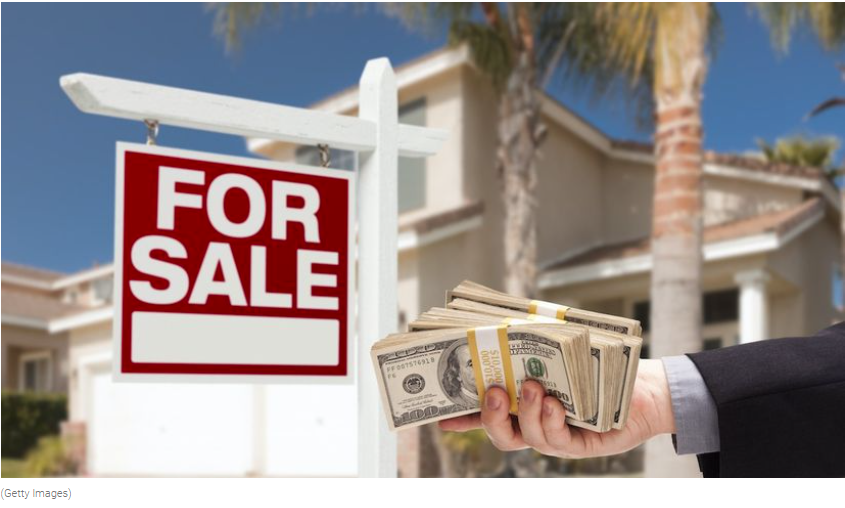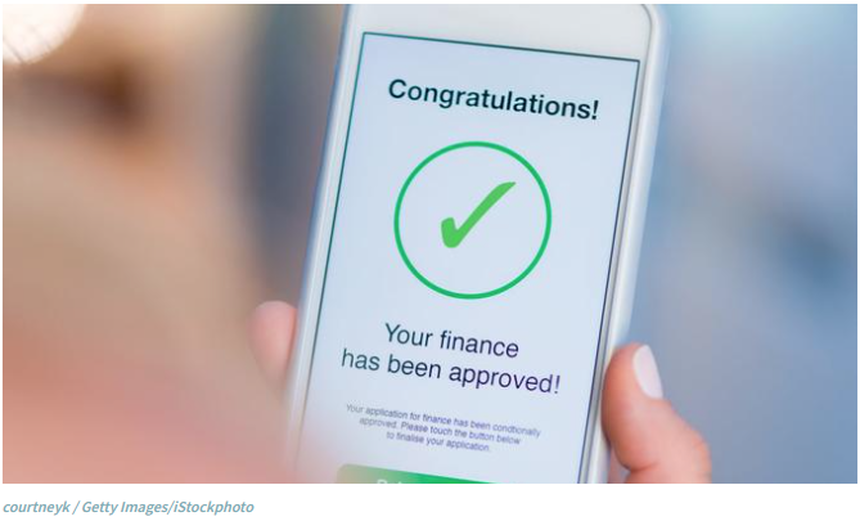|
Episode 199 AskJasonGelios Real Estate Show
0 Comments
My guest appearance on The Round Table Talk Show With Sharifa Hardie. A great round table discussion about emerging topics and interesting stories. By Erica Sweeney Featured Expertise by Jason Gelios Buying a home presents a different proposition for people in each stage of life. If you’re 20-something, you probably have a lot on your plate. You may be just out of school, dealing with student loans, and starting your professional career. But if you’re pulling down a steady paycheck, you might also be considering homeownership.
More than 70% of Gen Z—that is, people born after 1997—want to buy a home at some point, according to Realtor.com® research. Of that demographic group, 43% plan to buy a home in the next five years—with 45% of them already saving for that dream home. “Buying a home in your 20s is ahead of the game,” says Danielle Hale, chief economist of Realtor.com. “The typical first-time homebuyer makes their initial home purchase in their early 30s. But buying a home at an earlier age can help build up equity—the savings in your home—so that you end up with more down the road.” Click here to read more By The Realtor.com Team | Featured Expertise By Jason Gelios If you successfully closed on a home through a short sale, major congratulations are in order. Short sales generally mean a homebuyer has scooped up a property for less than market value.
But short sales are different from traditional home sales. In a short sale, the buyer is usually acting quickly and may close on a home before the sellers have a chance to properly vacate the property of their possessions. As a result, the previous owners may want to come back to their former house after closing and remove some of the items they left behind. Click here to read more By Cynthia Measom | Featured Expertise By Jason Gelios | GoBankingRates If you're a home improvement show junkie, you may dream of remodeling your kitchen, bathroom or installing some fancy landscaping, complete with a water feature. But those types of improvements can cost thousands.
The truth is that you don't have to invest in expensive, large-scale improvements to make a big difference in your home's appearance. Many worthwhile and effective home upgrades can be done for under $100 each. Click here to read more By Gabrielle Olya | Featured Expertise By Jason Gelios | Yahoo When you're selling your home, the home inspection could be a make it or break it moment for closing the deal. If problems pop up during the inspection, you could be on the hook for dealing with expensive repairs -- or worse, the prospective buyer could drop out.
Ensure Outlets Are Properly Wired"Home inspectors will walk through each room and check to make sure each outlet is wired Click here to read more Episode 198 AskJasonGelios Real Estate Show By The Realtor.com Team Featured Expertise by Jason Gelios If you’re a first-time homebuyer (or a longtime homeowner) out there searching for your new home, you may spend quite a lot of time touring houses with your real estate agent.
But what happens if after seeing what’s out there in this current hot, hot, hot housing market, you decide to not buy any of the many homes you’ve seen? Or if you make an offer on a property, but pull out due to a bad inspection or title search? You and your agent may be quite close at this point after countless hours together. Your agent probably can guess what you and your partner will disagree on when it comes to kitchen islands. And you might know your agent’s middle name, what college she attended, and her dog’s name. Your close relationship might even have you wondering, “Do I have to pay the real estate agent if I don’t buy anything?” After all, real estate professionals typically don’t get an hourly wage, and are paid only when a sale goes through. Here’s everything homebuyers need to know about when and if you need to pay an agent a fee—even if you don’t close the deal. Who pays the buyer’s agent if a sale goes through? Buyer’s agents typically get paid via a commission amounting to a percentage of the home’s purchase price, says Jason Gelios, top producing real estate agent and author at Community Choice Realty. The good news for the buyer? The seller is the one who pays the buyer’s agent at closing. The homebuyer typically doesn’t pay the agent. Does a buyer have to pay an agent if they don’t close? “Under no circumstances is a homebuyer obligated to pay a real estate agent if they didn’t end up locating and purchasing a home,” says Gelios. Plus, agents typically can’t charge you for their time, gas, or other expenses they incurred helping you look for a property. What if you have a buyer-broker agreement? A buyer-broker agreement is when a homebuyer agrees to work with a buyer’s agent exclusively to find a home, explains Gelios. This is common practice when hiring an agent to aid in your home search. But this agreement doesn’t put you under any financial obligation if you don’t buy a house. It simply means the homebuyer can’t revisit homes the first agent showed with another real estate professional. That is, unless the buyer-broker contract is terminated and the homebuyer chooses to work with another agent. Click here to read more Article By Gabrielle Olya Featured Expertise By Jason Gelios Originally featured on GoBankingRates If you’re applying for a mortgage loan, you no longer need to go to a physical bank and meet with a lender to get the loan you need — you can now go through the process entirely online. However, is the easier way always the better way? Not necessarily. Find Out: 10 Common Mortgage Mistakes That Hurt Your Finances Take a Look: Here’s How Much Mortgage Rates Have Fluctuated Over the Past Decade Before using an online mortgage lender, be aware of the pros and cons. Pros of Using an Online Mortgage LenderThere are several advantages to using an online mortgage lender. It Can Be a Faster and More Streamlined Process“We’ve made it easy to do everything from your couch,” said Tabitha Mazzara, director of operations at MBANC, a direct-to-consumer mortgage lender. “Even though we don’t have walk-in branches like old-fashioned banks, that doesn’t mean we don’t have personalized service. What it means is that we offer a streamlined process that allows you to have shorter processing times and accurate approvals, because we connect directly to your bank to get the precise information about your finances. Your pre-approval is faster, which in turn makes it more likely you’ll get the home you want.” “Digital signing also prevents delays, and that’s important in such a competitive market,” she continued. “Unsigned paperwork is one of the most common reasons transactions get delayed, but we avoid that altogether.” Helpful: Tips To Get Your Mortgage Payments as Low as Possible You May Get Lower Rates“As a direct-to-consumer lender, we also skip mortgage brokers altogether — the same way you probably skipped using an old-school travel agent and booked your last flight by yourself,” Mazzara said. “That saves costs.” Those overhead cost savings are often passed down to the customers. “Online lenders charge less and have fewer fees, making it a great deal for their clients,” said Dan Belcher, founder and CEO at Mortgage Relief. “They often offer rates with lower percentages, helping you save money.” Helpful: How Interest Rates Affect Your Wallet and the Bigger Economic Picture It Can Be Easier To Get Approved“FHA, VA, USDA and other loans require a minimum credit to get approved. However, individual online lenders can raise the bar at their own risks,” said Seth Williams, co-founder and real estate broker with Ledge & Young Real Estate. “Thus, it can be easier to get approved for a loan online.” Cons of Using an Online Mortgage LenderIn some cases, it may be better to go the traditional route. Here’s a look at the possible downsides of using an online mortgage lender. You May Not Qualify for the Advertised Low Rates“The vast majority of these online mortgage companies perpetuate business by advertising jaw-droppingly low rates,” said Samantha Kalla, a realtor with the Kalla Bay Homes Group. “This seems to be their go-to method for getting consumers hooked, and then much later, my clients have been hit with the ‘sinker.’ They often get them through the majority of the qualification process and underwriting, and then inform the client that they do not qualify for the advertised rate, and instead are stuck with a rate higher than if they would have gone the traditional banking route.” Find Out: How Much Debt Americans Have at Every Age You Lack the Convenience of Having a Human Contact If Something Goes Wrong When you go the traditional route you will be working with a human loan officer, which has its advantages. “The home buying process is already stressful enough — the last thing you want to be doing is tracking down where your loan file is,” Kalla said. “The implications of defaulting on a contract (i.e. a buyer not closing on time) are often more time-consuming and costly than choosing a traditional lender that you have a direct connection to, as well as someone that can be held responsible when underwriting is taking too long, or a back-end department screws up your name on the loan paperwork.” Even if there are no issues, you may want to have a human contact that you can go to with any questions during the process. “I have worked with home buyers who started off applying online, only to switch to a local and reputable lender who can provide them the guidance and answers they need with a more personal touch,” said Jason Gelios, a realtor with Community Choice Realty. “This is not to say that online lenders are not great for some people, but they tend to be better suited for those savvier with the mortgage process.” Good To Know: Why It’s Still Worth Refinancing Your Mortgage Now — Except in This Situation Online Lenders May Be Less Secure“There is an unfortunate possibility of working with scammers,” Belcher said. “Do your research beforehand and look for recommendations from people you trust. Read reviews before reaching out to work with an online lender. A disreputable online mortgage lender may have instances of fraud, so be careful when looking for one.” You’re More Likely To Make an Error During the Application Process“While filling out a form from the comfort of your own home may seem easy, online loan applications can be difficult,” said Chris McGuire, realtor and founder of Real Estate Exam Ninja. “The chances of making a mistake are higher than if you were guided by an expert. Making a mistake because you misunderstood a question might cost you extra money or cause an issue down the road.”
Article by Guest Writer: Sally Norton Are you of the opinion that you are too young to be a homeowner? Well, unless you are a teen still living with your parents, you definitely aren't! If you genuinely wish to buy a house in your 20s, the good news is that that's possible. Investing in a property will, most likely, be the most grown-up thing you've ever done. And let me tell you, it will be anything but easy. Still, if you feel confident about your decision and wish to proceed, then so be it! This article will attempt to familiarize you with the matter of acquiring housing young and why, in the end, doing so might even prove the best decision you've ever made! Why it makes sense to buy a house in your 20s Like there are differences between purchasing housing before and after getting married, there are those between purchasing housing in your 20s and later on in life. The younger you are when you buy, the more financially secure you will be in your future. While you work on paying off your mortgage, your equity will build, which, later on, can be used to your advantage. Then again, if you take out a mortgage young, the house should be paid off years before you hit retirement - provided you don't take out another loan down the line. By buying in your 20s, you also allow your property to appreciate. You could sell this property for a profit later on or use the money received to buy yourself a bigger home. It makes sense to buy a house in your 20s for several reasons. One of them is that there will be more time for your home to appreciate. How to acquire housing while still in your 20s Purchasing housing is doable even for the oldest members of Gen Z! Here is crucial information you must know should you decide to become a young homeowner yourself! Gather money for a down payment Before you purchase a house and resort to seeking moving assistance through verifiedmovers.com, you'll first have to save enough money for a down payment. In a nutshell, a down payment is an amount you pay upfront to secure the mortgage. Getting a loan without it is, sadly, not possible. The majority of first-time homebuyers are required to put down 20% of the home's value as a down payment. If we talk about a house that costs about $200,000 to purchase, that accounts for $40,000 you must pay at once! You could put down less than that, though. But in that case, you would be required to pay private mortgage insurance every month for the entire duration of your mortgage. Not having enough money saved for a down payment isn't a reason to give up on purchasing a property altogether. You could ask others for help, including your parents, or resort to applying for one of the down payment assistance programs. Either way, becoming a homeowner at a young age is possible, even if you aren't currently in the best financial situation. To be approved for a mortgage, you'll first have to save enough money for a down payment. Either that or apply for an assistance program. Refinance your student loan Are you still paying off your student loan? If so, you may be thinking it will be impossible to get a mortgage approval while in debt. But that's not true! Whether your mortgage request will be approved depends on your debt-to-loan ratio, which shouldn't exceed more than 36%. If it exceeds the set percentage, refinancing the student loan might prove the solution to the problem. By refinancing the loan, you prolong the period it takes you to pay it off, but as a result, you also get smaller monthly installments. These, in turn, allow you to make enough room for the mortgage. Get someone with a good credit score to co-sign the mortgage If you wish to buy a house in your 20s, then you'll have to find someone with a good credit score to co-sign it! Unfortunately, the younger the person, the shorter their credit history. And the shorter the credit history, the higher the chance it isn't ideal. Most lenders require the score to be at least 660. If it is lower, you may have to wait a few months or a few years for it to improve. By having the other person with great history co-sign your loan, though, you should be getting approved without having to wait. If you have a poor credit score, you'll have to find someone with a good score to co-sign your mortgage. Start small You've gathered the courage to become a homeowner in your 20s. That's a giant leap in and of itself! This being your first home ever, it's recommended you don't rush into investing in something big - something that you aren't sure you'll be able to pay off in the future. You are young, and this probably won't be the last house that you buy. With that in mind, think about starting small. Most people refer to their first homes as ''starter homes.'' They grant you entry into homeowner waters and allow you to stay in them for longer. They are typically cheaper properties. Ones that come with shorter pay-off periods and lower interest rates. Set aside enough money for unforeseen expenses There is a range of expenses associated with buying and owning a home. These include everything from a down payment, closing costs, various fees, monthly mortgage, property tax, and others. And while you should be familiar with the ones just stated, there are the ''so-called'' unexpected costs to be wary of. For instance, you can never know when something might go wrong in the house. And the older the property, the higher the possibility of something malfunctioning. That's why it's essential to set up ''a rainy day fund'' which you'll, later on, use to finance the necessary repairs on time. The sooner you set up the emergency fund, the better. Some recommend you do it before you've even bought the property! That way, you'll be 100% prepared for unpleasant surprises if they happen. Takeaway Although it's not precisely simple to buy a house in your 20s, it is something you should be able to do if you feel determined enough. However, before you go through with the purchase, make sure you talk to several professionals, including an experienced real estate agent and mortgage broker. They should provide answers to all the questions you may be having and guide the entire home buying process in the right direction.
5 Things You Can Do To Be More Resilient An Interview With Savio P. Clemente Resilience has been described as the ability to withstand adversity and bounce back from difficult life events. Times are not easy now. How do we develop greater resilience to withstand the challenges that keep being thrown at us? In this interview series, we are talking to mental health experts, authors, resilience experts, coaches, and business leaders who can talk about how we can develop greater resilience to improve our lives.
As a part of this series, I had the pleasure of interviewing Jason Gelios. Jason Gelios is an Award Winning, Top Producing REALTOR® in Southeast Michigan, Author of the real estate book Think Like a REALTOR®, Expert Media Contributor of real estate expertise to major media outlets, and the Creator of The AskJasonGelios Real Estate Show educating home buyers and sellers the in’s and out’s of the process with real world expertise. Click here to read more Guest Writer: Sally Norton When it comes to buying a new home, there are two main ways you can handle the financing. Today, we will take a deeper dive into the differences between buying with cash vs. getting a mortgage. Hopefully, this article will clear up any uncertainties you might have had and help you choose the option that is the best fit for your financial situation. The basics of cash vs. getting a mortgage If you ask people what they think is better, no one will tell you that having a massive debt is a good thing. However, that doesn’t mean that it’s an open and shut case. There are many nuances you need to consider before making the best financial decision. Funding everything with cash may sound like an unattainable dream for some. Honestly, most people will never have enough money set aside to fully buy a house just from that. Consider yourself lucky if you have that as an option. Despite being able to afford it, purchasing a home for a large amount of cash might not represent the best option. Let’s say you can’t afford to buy the home outright, but you do have a substantial amount in cash. Even sinking as much money as you can into the down payment to lower the mortgage rates will have its downsides as well. Putting all of your cash savings into a home is a huge commitment. On the other hand, you need to consider how long it will take you to pay off your mortgage and what kind of a burden it will leave on your finances. Getting a mortgage isn’t the same in your 20s and your 50s. If you are buying your first home a little later in life, your savings will hopefully be better as well. To better understand your options, let's look at buying with cash vs. getting a mortgage and the pros and cons of each of these approaches. Buying a home with cash Pros of buying with cash:
Couples often decide to buy a home together if they are getting married. Getting a mortgage Pros of getting a mortgage:
If you get a mortgage, you will need to deal with monthly payments. Drawing conclusions from buying with cash vs. getting a mortgage? Paying with cash is obviously going to be more attractive to sellers. They won't need to worry about buyers being declined for a loan. Also, sellers usually expect the sale to wrap up faster if they are dealing with a cash buyer. On the other hand, buyers can use cash payment as a negotiation tool to lower the price. Depending on your other finances, getting a mortgage can protect you from creditors. For example, in Florida, homes are exempt from certain creditors, making the mortgage a safety net. Of course, this can depend on homestead exemption laws and how much of the mortgage you have paid off. Whichever route you choose, you will need to keep in mind that you'll be facing additional expenses. Besides the closing costs, which we already mentioned, most people forget about the costs of moving. Besides being costly, moving is also pretty stressful. And you can make it much less overwhelming if you use the most efficient way to pack and hire a moving company. In fact, getting professional services is highly recommended, as DIY relocations can end up costing more. The bottom line As you have seen, there are pros and cons to both sides, and it’s not easy to determine a clear winner in buying with cash vs. getting a mortgage. Carefully consider your needs, current situation, and your financing options to make the decision that’s best for you.
|
AuthorJason Gelios is a Husband and Father. After that, a Top Producing REALTOR®, Author of the books 'Think like a REALTOR®' and 'Beating The Force Of Average', Creator of The AskJasonGelios Real Estate Show and Expert Media Contributor to media outlets across the country. Archives
July 2024
Categories |



















 RSS Feed
RSS Feed